Croatian Company Koncar Strengthening Position in Sweden
September the 30th, 2021 - The Croatian company Koncar is busy strengthening its position on the Swedish market after having signed its first contract with a Swedish system operator, worth a massive 63 million kuna in total.
As Poslovni Dnevnik/Lucija Spiljak writes, the month, the Croatian company Koncar (Koncar Energy and Transport Engineering (KET) signed its first contract with the Swedish distribution system operator Vattenfall Eldistribution. This 63 million kuna strong contract includes a very complex reconstruction of the 130 kV plant at the transformer station (TS) 220/130/70/20 kV Finnslatten in Västerås, which is located not far from the Swedish capital of Stockholm, and was signed by Ivan Tomsic of the Croatian company Koncar.
The contract is the result of three years of systematic performance and sales activities on the Swedish market, and Koncar states that it was obtained in strong competition from local reputable companies.
“Based on its own extremely high standards, the customer has carried out a pre-qualification procedure for a project that is of strategic importance for supplying the industrial zone and priority customers. Special emphasis was placed on safety at work, compliance of business processes with quality monitoring and environmental protection systems and detailed safety checks of all members of the project team,'' they say from the company.
The reconstruction project of TS 220/130/70/20 kV Finnslatten, which is expected to be completed in the middle of 2023, is a complex project involving the replacement of the external, air-insulated 70 kV plant with a new 130 kV plant. The reconstruction process includes the preparation of all of the project documentation, the delivery and replacement of high-voltage primary equipment, secondary equipment, auxiliary systems, the construction of a new control building, as well as the necessary construction work, functional tests, and the commissioning and maintenance during the warranty period.
In addition to all of the above, which is extensive enough on its own, the subject of the contract also involves the procurement and laying of 145 kV cables and other equipment for the purpose of connecting priority customers on the route of 4 kilometers.
According to what is currently known about the deal, the Croatian company Koncar will, in addition to the local subcontractor for construction works, rely on its own experts for project management and design, and will also open a branch office that will serve the local implementation of this and all future projects in Sweden.
“The development of activities over on the Swedish market is supported by the recently received decision on the selection of the Croatian company Koncar as the best bidder for the project of reconstruction of secondary protection, control and SCADA systems for the Swedish transmission system operator Svenska Kraftnat. This project represents a very complex project involving the reconstruction of secondary systems of 400 and 220 kV transformer stations, which confirms the quality, professionalism and expertise of Koncar from sales to the implementation of complex projects on the wider EU market,'' the company concluded.
For more, make sure to check out our dedicated business section.
Ruđer Bošković Institute Plasmonic Effect Research Shows Promise
September 10, 2021 -The Ruđer Bošković Institute plasmonic effect research described the property of nanoisland metal films of silver and copper which can be seen in various applications, particularly in green technology development.
Metal nanoparticles are submicron scale entities made of pure metals (e.g., gold, platinum, silver, titanium, zinc, cerium, iron, and thallium) or their compounds (e.g., oxides, hydroxides, sulfides, phosphates, fluorides, and chlorides), as explained by the Science Direct website.
When it comes to modern science, a particular interest in metals has now shifted to the Plasmonic effect. This effect is an interaction between free electrons in metal nanoparticles and incident light, as briefly explained by the National Institute of Technology Calicut physics department researcher Shamjid Palappra.
With this question raising curiosity among scientists worldwide, it was impossible for the Ruđer Bošković Institute (IRB) in Zagreb and their optics laboratory to not dive into the subject themselves.
As IRB reported, Matej Bubaš, Vesna Janicki, Stefano A. Mezzasalma, Maria Chiara Spadaro, Jordi Arbiol, and Jordi Sancho-Parramon authored a research titled ''Tailoring plasmonic resonances in Cu-Ag metal islands films'' which was then published in a respected Applied Surface Science journal.
IRB's optics lab collaborated on this research with colleagues from the Lund Institute of Advanced Neutron and X-ray Science (LINXS) in Sweden, and two institutions from Catalonia in Spain, the Catalan Institute of Nanoscience and Nanotechnology and ICREA.
''The plasmonic response of Cu-Ag metal islands films is being investigated. Films are obtained by the subsequent electron beam deposition of Ag and Cu using different fabrication conditions: the deposited mass thickness, then comes the substrate temperature, and then the post-deposition annealing in the vacuum. The optical properties of the films are investigated by spectroscopic ellipsometry and then correlated with the structural characterisation results obtained by electron microscopy,'' explained the abstract of the research concerning the metal island combination of silver (Ag) and copper (Cu).
''Overall, it has been shown that Cu-Ag island films are compelling systems for plasmonic applications, as their optical response can be widely and easily tuned by adjusting the fabrication conditions,'' the abstract summarised.
IRB's press release clarified the research goals, stating that the scientists described how plasmonic properties could be adjusted for the preferred types of radiation, be it infrared, visible light, or ultraviolet radiation. These descriptions and setup possibilities of nanoisland plasmonic properties bring with them a plethora of applications.
''Devices that use plasmonic effects already upgraded their diagnostics and spectroscopy, while research in the direction of upgrading the conversion of solar energy and manufacturing catalysts that would turn toxic compounds into useful ones carry great potential for the development of new green technologies,'' pointed out IRB's press release.
Developing green technologies and turning toxic compounds into useful ones is not a new thing for IRB, as TCN previously reported.
Learn more about Croatian inventions and discoveries from Tesla to Rimac on our dedicated TC page.
For more about science in Croatia, follow TCN's dedicated page.
Croatian Invasion Video: Meet Cult Swedish Comedy Group Grotesco
Aug 20, 2021 - Have you ever seen the hit Croatian Invasion video? Watch it now and meet the hilarious Grotesco comedy group from Sweden!
Being a small country, Croatia has wanted global recognition since its beginning. This doesn't just refer to the political recognitions and diplomatic relations, but also to make its way into global pop culture. And, of course, hoping it will be in pop culture in a good way, not the Borat way like the country of Kazakhstan.
Back in 2011, the animated American sitcom „Ugly Americans“ (that follow a New York full of demons, zombies, and other magical creatures) made the news in Croatian media with a short clip of one of the characters eating a dead body and saying „My first Croatian, oh it tastes like Serb. “
As evident by comments, while some laughed at the edgy adult humor, many also expressed their dissatisfaction in 24 Sata's comment section, feeling insulted by the clip.
Because America is America, almost anything published there travels globally as media content, but the same can't be said for some other countries.
One such example is Sweden, where back in 2007, the „Croatian Invasion“ sketch was released by the comedy group Grotesco.
Check it out for yourselves.
To be frank, watching the video stunned me before I laughed through tears, although I really had no clue what the video was about. A quick internet search only informed me that Grotesco is a comedy group and that there is no music album to buy from them. But what was the message of the video? How popular is it in Sweden?
In the tradition of Croatians and other Balkan people going to European countries to work and live, Sweden is one of the many preferred destinations.
Early work of the popular comedy group
Vladan Laušević came to Sweden in 2003 as a teen from Bosnia and is today based in Stockholm, mostly working as a social entrepreneur. In 2017, he started writing as a columnist for a social and cultural magazine, Opulens, and his main responsibility later became taking care of the English section Opulens Global. He is also active in Croatian media, occasionally writing for Liberal.hr.
It was in an article Laušević wrote for Liberal.hr about Cuba that revealed one of his contacts sent him the „Croatian Invasion“ video, as comedian Michael Lindgren's experiences in Cuba was the focus of the piece Laušević wanted to present to the Croatian public. „I was not familiar with the video before, but I recognized comedian Michael Lindgren and his humor collective Grotesco. When I moved from Bosnia to Sweden in the early 2000s, I started watching television also to learn Swedish and often was able to see Grotesco since they are a very famous comedy collective“, explained Laušević.
He added that during the 2000s, ads for Absolut Music compact disks (CDs) were viral, so he saw Croatian Invasion as a parody of those ads.
„Also, one must keep in mind that Lindgren and his alter ego Dj Trexx are making fun of Eastern European stereotypes and former communist countries. For me, it was funny to see that "Croatian Invasion" was like a predecessor of Dj Trexx's later videos, such as about Russia and the former Soviet sphere, “Laušević pointed out.

DJ Trexx (Michael Lindgren) in the middle of the performance, screenshot / SVT
Humour in Sweden is well developed on many levels, from stand-up comedy and beyond. Referring to the comedy scene in Sweden, Laušević revealed that the Grotesco collective is mainly based on political parodies. For example, how Sweden dealt with the refugee crisis in 2016 or in real-life situations such as how parents behave during a school meeting.
„So when it comes to the video itself, it is more special because Dj Trexx was specialized in making parodies on stereotypes and cliches about Eastern and former communist Europe. I would not be surprised if Lindgren used to listen to techno music and watch videos from Croatia in the mid-2000s to develop his humor agenda“, concluded Laušević.
He isn't sure how popular or famous the video was during the late 2000s, but today Laušević saw that the video had been mentioned in different chat platforms and forums as one of Dj Trexx's early works.
When it comes to the impact on the impressions of Swedish people about Croatia, the video isn't the trigger for any particular opinions about the country.
„I have only received a few questions about the video from people I know and who are older and remember it from the 2000s, and our discussions were mostly based on cliches and stereotypes regarding former communist countries. I have mostly seen and heard positive stories and experiences from my contacts and others when having spontaneous conversations about Croatia. It mostly has to do with tourism and the seaside because many Swedes love to go to Croatia during summertime. Older generations had positive experiences from vacations when Croatia was a part of Yugoslavia, while younger ones have more experiences with modern Croatia“, described Laušević.
Improvised writing and pure fun
Thanks to Laušević's well-established Swedish contacts, Michael Lindgren, aka Dj Trexx of the Grotesco collective, recalled for TCN how the video was made.
„The original idea for Croatian Invasion was just to let our prejudices about the Eastern European electronic scene run wild. No deeper thoughts. My colleague and I were improvising while writing; I think we were quite drunk“, said Lindgren. „The video was a skit in the first season of our sketch comedy show Grotesco in 2007. The overall reception was good, although it was kind of a cult hit. Our broad breakthrough in Sweden was in 2009 when we made the entertainment part of the Swedish Eurovision competition Melodifestivalen“.
While at the start, DJ Trexx was Croatian, he later turned Russian. Humourous provocation (see the song "Tingaliin") and artistic experimenting lead to the change of the character that continues to explore social solidarity and liberal freedom.
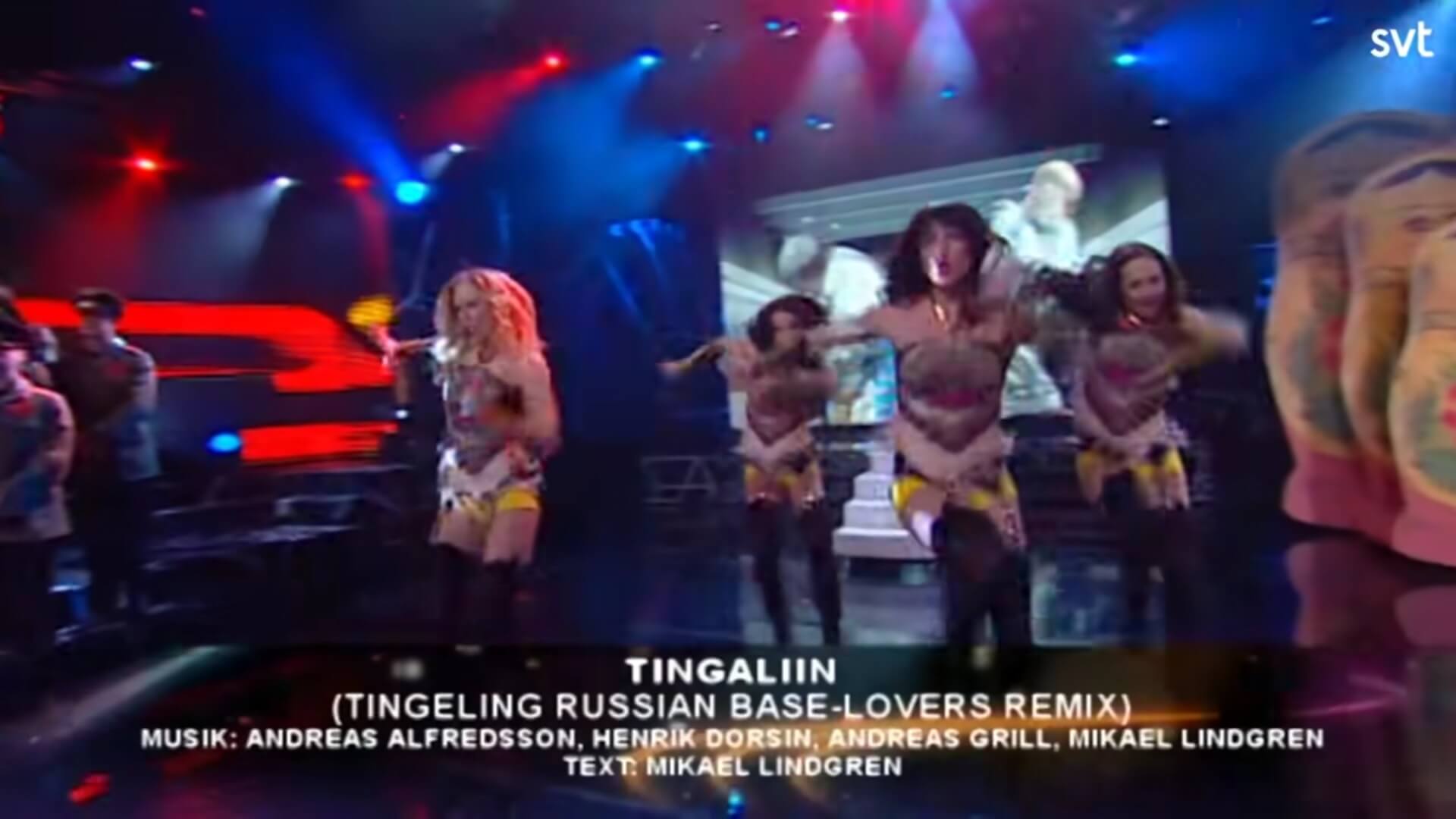
Performance of Tingaliin a parody of Eastern Europe stereotypes at Melodifestivalen 2009, screenshot / SVT
„Trexx evolved from Croatian Invasion. He became defined as Russian-East-German when we did Tingaliin in 2009 (because Russia was hosting Eurovision that year). I think he reflects a part of me that I wanted to experiment with all alter egos. He was born in East Berlin “behind the wall” (son to a red army officer and a German concert violinist), but he loved western electronic techno. Maybe I liked that story because I was a Swede struggling with the ideas of socialist solidarity and safety vs. liberal freedom. Trexx also loves the idea of a free united Europe“, described Lindgren.
Stating how he doesn't know any Swedish-Croatians personally, Lindgren's general impression is good with no particular prejudice.
„Croatian Invasion was just pure fun, not really meant to say anything intellectually - maybe a love-hate tribute to our prejudices about the newly liberated Eastern European techno scene around the 2000s. Also based on the eclectic and, through Scandinavian eyes, over the top and sometimes bizarre acts in Eurovision from the previous Eastern bloc“, concluded Lindgren.
In the end, he hopes he will have a chance to visit Croatia someday, and with Swedes having a positive experience in the country, it would be awesome for the Swedish celebrity to also enjoy the country and perhaps even visit some of the many electronic music festivals Croatia has to offer. Particularly on Pag's Zrće beach.
Learn more about various Croatian destinations on our TC page.
For more about Croatia-Sweden relations, follow TCN's dedicated page.
Varazdin City Connect Becomes Part of Swedish Transcom
August the 2nd, 2021 - The company Varazdin City Connect from Northern Croatia has done remarkably well for such a young company, and has now become part of the Swedish Transcom company.
As Novac/Bernard Ivezic writes, the Swedish company Transcom, which entered the Croatian market fourteen years ago in parallel with Tele2, to which it provided call centre services from Vukovar, has taken over Varazdin City Connect. While the value of the takeover hasn't yet been announced, Transcom’s plan going forward has. Its goal is to position itself as the leading BPO service provider here in the wider Adriatic region.
The acquired company, Varazdin City Connect, became quite popular in Croatia in a short amount of time. It is a very young company that is growing so quickly that it is being hailed as ''Varazdin's Infobip'' - a true mark of success when one considers what the actual Infobip from Vodnjan has achieved.
the Varazdin City Connect company was founded back in 2019, and in its first year of operation alone, it had revenue of 1 million US dollars and a net profit of 328,589 dollars. Last year, it generated revenue of just over 7 million dollars and a net profit of 4.7 million dollars. This year, however, the company expects to generate revenue of nearly 18 million dollars with double-digit net profit growth.
In addition, the Varazdin City Connect company grew to 425 employees last year, of which 340 are located right here in Croatia. Now, in the middle of 2021, thar figure is even higher, with 620 employees, both in Croatia and in nearby Macedonia and neighbouring Slovenia.
Marko Dagelic, President of the Supervisory Board of City Connect, says that their business with the Swedish company Transcom is extremely good.
''The current owners and management of the Varazdin City Connect company have entered into the co-ownership of Transcom and took over the management of Transcom's positions in the Adriatic region, and with this business move, Transcom has become the dominant BPO service provider with more than 3,000 employees,'' explained Dagelic.
He stated that this was a key reason for the acquisition, as it will allow for greater and easier growth and better service delivery to global clients, as well as greater availability of labour and language skills.
Transcom stated that the Varazdin City Connect company is an enterprise specialising in omnichannel user experience and has a strong presence on the German market. The largest number of its clients are listed companies and fast-growing e-commerce companies.
Jonas Dahlberg, President and CEO of Transcom, said that Transcom has significantly improved profitability over the years, developed a strong digital offering and is now growing rapidly in attractive segments such as e-commerce and technology.
''The German market is now our strategic priority and we're continuously strengthening our operations to support the high demand for our services. By partnering with City Connect, we're further strengthening our ability to thrive on the German market,'' noted Dahlberg.
Dagelic from the Varazdin City Connect company added that from their perspective, business is good because of the similar cultures and values shared by Transcom and City Connect, but also because they complement each other.
''With Transcom's well-managed operations in Albania, Bosnia and Herzegovina, Croatia and Serbia, we now have a presence throughout the region and additional resources to provide superior services throughout the Adriatic region, serving not only the German market but also large multilingual and international clients,'' said Dagelic, adding that as part of this move, they didn't sell the project of the previously announced future data centre in Varazdin.
Namely, they announced the construction of a data centre of 2000 square metres, the largest such facility in all of Croatia. That part of the business is now under the auspices of Cratis, which was partly linked to City Connect through management and partly through actual ownership.
''These are now separate stories,'' stated Dagelic.
the Varazdin City Connect company boasts a wide variety of services in the field of telecommunications and software, hence the association with the incredible Infobip, which it actually has nothing to do with at all. City Connect is building virtual telecommunications networks for customers, which is something telecoms normally do. Furthermore, it deals with the installation and connection of software, such as system integrators, then the contact centre, and even consults its clients on how to carry out the digital transformation they need. In any case, this is a successful company that stands out from the usual classifications.
''With a new opportunity to expand our current portfolio, we'll continue to provide flexible, agile and top service to our clients,'' concluded Dagelic.
For more, follow our business section.
Croatian-Swedish Entrepreneur Darko Pervan Satisfied with Spacva Purchase
June the 4th, 2021 - As we recently wrote, the Croatian-Swedish company Pervanovo, owned by entrepreneur Darko Pervan, has purchased the Croatian company Spacva, with plans for big investments and more.
As Poslovni Dnevnik/Suzana Varosanec writes, on behalf of the Pervanovo company (based in Dubrovnik), owned by sole founder Pervanovo Invest AB from Sweden, Swedish-Croatian entrepreneur Darko Pervan, special attorney at law Mislav Bradvica, lawyer at the Zagreb law firm Bradvica, Mari, Wahl, Cesarec, delivered a notice of the occurrence of the obligation to publish a takeover bid for Spacva to the Zagreb Stock Exchange.
The above notice was submitted on the occurrence of the obligation to publish a bid for the takeover of the company Drvna industrija Spačva d.d., based in Vinkovci, and was entered into the court register of the Commercial Court in Osijek.
"Please publish the submitted notice on the occurrence of the obligation to publish a takeover bid without delay on the website of the Zagreb Stock Exchange d.d., in accordance with Article 4, paragraph 2 of the ZPDD,'' reads the notice.
Entrepreneur Darko Pervan appears extremely happy with the Spacva purchase, and can hardly wait to begin with his business plans. ''We're very satisfied with this latest acquisition,'' added Stjepan Vojinic, a member of the Management Board of Pervanovo, who clearly shares in this feeling.
"We've purchased Spacva, through the acquisition of shares from the Questus fund, Hrvatska postanska banka (HPB) and the Maverick fund, and that's a total of 98.6 percent of Spacva's shares," explained Vojinic, adding that they have to enter the operational business of Spacva in order to then present their ambitious future plans.
The full transaction was completed in which, as has since been found out, the services of consultants weren't even used. In the continuation of the procedure, a public announcement is expected for the remaining 1.4 percent of Spacva shares.
For more, follow our dedicated business section.
Darko Pervan to Purchase Croatian Spacva, Planning Huge Investment
June the 3rd, 2021 - Darko Pervan, who is a Swedish-Croatian investor quite well known across the country for his business moves and various acquisitions, will be the one to take over the Croatian Spacva company.
As Novac/Jozo Vrdoljak writes, Quaestus Private Equity sold 75.8 of its shares of the Croatian Spacva to Swedish-Croatian investor Darko Pervan and his Croatian company Pervanovo, and the plans now are quite ambitious indeed.
Until recently, the Polish flooring manufacturer Barlinek was the most serious investor in the Croatian Spacva company. But after that enterprise gave up on the venture, Darko Pervan's Pervanovo came into play. Representatives of the Quaestus Private Equity Kapital II fund were in Sweden about a year or so ago and talked personally to Darko Pervan, who is considered one of the most desirable investors in the wood industry, but Pervan kept things close to his chest all the time.
Now it can be seen that Pervan's move was indeed a brilliant strategic move, and the lion's share of the takeover was done by Stjepan Vojnic.
''The process of finding a strategic investor for the Croatian Spacva company began back in September 2020, at during very challenging times given the epidemiological situation.
During the process, talks were held with the largest and most reputable European wood industries and several investment funds. The entire wood industry has operated very successfully since last summer and with surprisingly good results given the situation, but uncertainty and limitations in normal business and travel have made it much more difficult to implement the process that was led entirely by Quaestus.
In the second step of the process, interested investors conducted an in-depth survey of the Croatian Spacva company. Corporate governance and transparent operations have been the focus of Quaestus and Spacva since the very first day of the takeover, and an in-depth look was only a formal confirmation of many years of good practice. The transaction was finalised during the month of May and a transition period will now follow until the assembly is held.
We're pleased with the outcome because satisfactory conditions have been achieved for our investors, but the long-term future of Spacva has also been ensured. As such, both goals of the funds for economic cooperation have been met. The Croatian Spacva company is in an extremely good financial situation with fully organised business processes, and Darko Pervan and the companies in the Bjelin Group have all the necessary resources, knowledge and vision to turn Spacva from a mere Croatian leader to a European leader in the wood industry,'' said Mario Popic from Quaestus Private Equity.
Quaestus otherwise initially took over Spacva back in 2013, after it had fallen into a severe crisis.
An investment of 200 million euros
Stjepan Vojnic, the director of the companies Pervanovo and Bjelin, recently revealed that in this cycle, the companies owned by Darko Pervan headquartered here in Croatia intend to invest 200 million euros. Bjelin, Pervan's second company operating in Croatia, manages plants for the production of floor coverings in Bjelovar and Ogulin, and he's been the owner of the company Furnir from Otok for over two years now.
In addition to the strength of the brand and its implied tradition, the huge value of the company and its contract with Croatian Forests (Hrvatske sume) is also of significance. A quota of 45,000 cubic metres of oak per year for a period of one decade has been agreed.
The Croatian Spacva company's geostrategic position is also valuable due to the fact that the area of Vinkovci still has a sufficient number of interested workers trained to work in the wood industry in this country. During the first quarter of 2021, Spacva recorded 65 million kuna in revenue and 3.4 million kuna in profit, and its inventories were worth a massive 81 million kuna as of March the 31st.
For more, follow our business section.
Swedes Continue Trying to Sell Gripen Aircraft to Croatia, Ready to Lower Price
February the 4th, 2021 - The Swedes are continuing to try to sell their Gripen aircraft, about which there has been a lot of talk for months now, to Croatia. They're even ready to lower the price even more.
As Poslovni Dnevnik/Darko Bicak writes, after the ad hoc Advisory Interdepartmental Commission for the Procurement of a Multipurpose Fighter Aircraft was submitted to the Croatian Government in mid-December last year, it submitted a "Feasibility Study for the Procurement of a Multipurpose Fighter Plane (VBA)".
Although the Commission was expected to reach a conclusion that the government would then only confirm, possibly seeking Parliament's approval afterwards - as was the case with the last tender in which the Israeli Barak was selected, the conclusion was that the body considered the optimal choice to be the used French Rafale aircraft, and for the new American F-16 Block 70/72. Therefore, a decision was made that there is no decision, and that the responsibility for the choice has now been transferred to the Croatian Government, although it was confirmed that all of the offered aircraft fully meet all Croatian technical and tactical needs.
An offset of one billion euros
As expected, a used Israeli-American F-16 Barak dropped out of the game because it was clear to everyone even before the tender that the offer was meaningless. The reason for this is the previous unsuccessful purchase of that aircraft from Israel, as well as the fact that these are temporary aircraft that would be about 40 years old at the time of delivery to Croatia.
That this was clear to everyone is also showcased by the fact that Israel didn't actually lobby for its planes, and the Americans submitted their offer for the sake of keeping order.
A much bigger surprise was the write-off of the Swedish Gripen aircraft, although it was obvious at the beginning that almost all of the bidders are strong players, some in a geopolitical sense and some in an economic sense, and that any losers could cause some problems in the political and economic global arena. Although it's clear to everyone that the Rafale and F-16s are larger and more powerful, and of course more expensive fighter jets than the Swedish Gripen aircraft, the Swedes are the only ones who have made a concrete offer for economic cooperation with Croatia.
Among other things, in an interview with Poslovni Dnevnik, those at the helm of Saab, the manufacturer of the Gripen aircraft, and the Swedish arms agency FMV, said they were ready to invest half of the total price of the Gripen aircraft into the Croatian economy. If it's known that the basic price of these Gripen aircraft stands at around one billion euros, and the costs of its maintenance, armament and use would be the same, it's clear that the Swedes would invest around one billion euros in Croatia in some form of offset.
The Americans offered cooperation with six unspecified Croatian companies that the F-16 aircraft manufacturer, Lockheed Martin, would include in its global supply chain. In addition to the F-16, the company also produces F-22 and F-35 fighter jets, as well as C-130 Hercules and C-5 Galaxy transport aircraft, and has other missile and space divisions too.
France's offer is the biggest mystery of all. Although in unofficial talks with military officials and other bidders, one may get the impression that the Rafales are the favourites of the Croatian Government, nothing is publicly known about their offer, both in a financial sense with regard to the aircraft, weapons and equipment, nor about about possible reverse economic cooperation or offsets.
A campaign in Brussels
Over recent, semi-official information has been circulating in the public eye, which no one wants to officially comment on, and that's that the Swedes allegedly aren't intending to give up with their Gripen aircraft offer to Croatia easily because they're convinced that the Croatian tender has been rigged.
Namely, the Swedes, according to that source, are allegedly offering Croatia a loan with zero percent interest and a two-year grace period to pay the first installment of the loan. Reportedly, they're ready to lower their current price of 900 million euros for the entire package (aircraft, equipment, weapons, training and logistics). On the other hand, according to that same source, a campaign is planned to be launched in Brussels due to the alleged promotion of one bidder by HDZ.
Alleged ''proof'' of this is offered by the fact that the ruling HDZ newspaper has, in the past, published unsigned ''fan articles'', for which it isn't entirely clear whether they were paid or journalistic, in which the Gripen aircraft and the Swedish offer were apparently ''satanised''.
It's therefore very difficult to say what will happen next in the seemingly endless Gripen aircraft, Croatia-Sweden story, but it is certain that a lowered price will be of interest to some.
For the latest travel info, bookmark our main travel info article, which is updated daily.
Read the Croatian Travel Update in your language - now available in 24 languages.
Croatia More and More Sought-After by Swedish Tourists
ZAGREB, Dec 14, 2020 - Croatia is an increasingly attractive destination for holidays in 2021 among Swedes, according to data collected by TUI Nordic tour operator, the Croatian National Tourism Board (HTZ) has recently reported.
Vedran Susic, director of the Croatian National Tourist Board Representation in Sweden, has been quoted as saying on 7 December that twice as many trips were booked in Sweden last week than in the week before that.
Croatia is among several Mediterranean destinations that are chosen most frequently by Swedes for holidays in 2021, the other destinations being Crete, Rhodes, Cyprus and Antalya.
According to HTZ data, from 1 January to 30 November this year, about 41,000 travellers from Sweden visited Croatia and made 228,000 overnight stays, which was equivalent to 15% of their arrivals in 2019.
Stories from the Diaspora: Moving from Osijek to Sweden
December 8, 2020 – Yesterday, TCN reported that Croatia is among the most sought after tourist destinations for people in Sweden. Today, we meet a couple who went the other way – from Osijek to Sweden – for a more permanent stay. How does life compare for young couple Marin and Vedrana?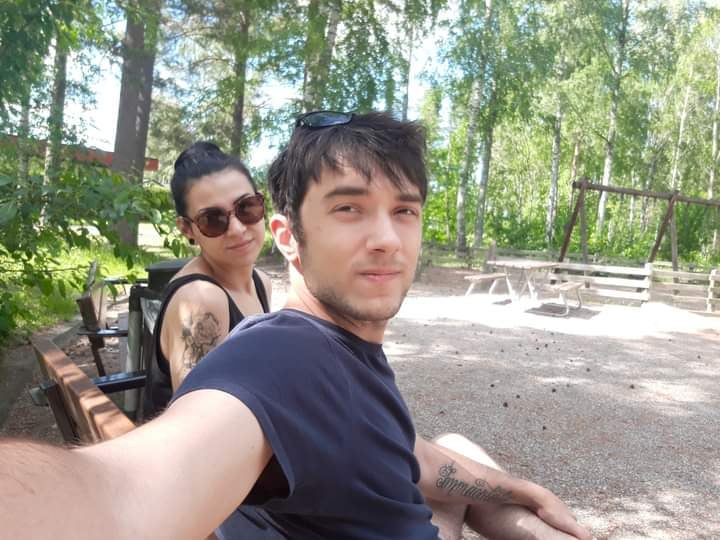
Marin Relja from Darda (25) and Vedrana Maksimovic from Sarvaš (24) swapped Slavonia for Västerås in June of 2019. We interviewed them to find out some of the ways life compares when you move from Osijek to Sweden.
Marin: We lived with parents when we were back in Osijek. A lot of the time we spent at Vedrana's parents, we had our own space there, which was great, but we didn't have total freedom. There were always quite a lot of other people around and when you are surrounded by family, certain responsibilities are put on you. It's much easier to live by yourself.
Vedrana: If we'd stayed in Osijek, probably we would have needed some support from our families so we could live together, independently. Here, we can do that by ourselves.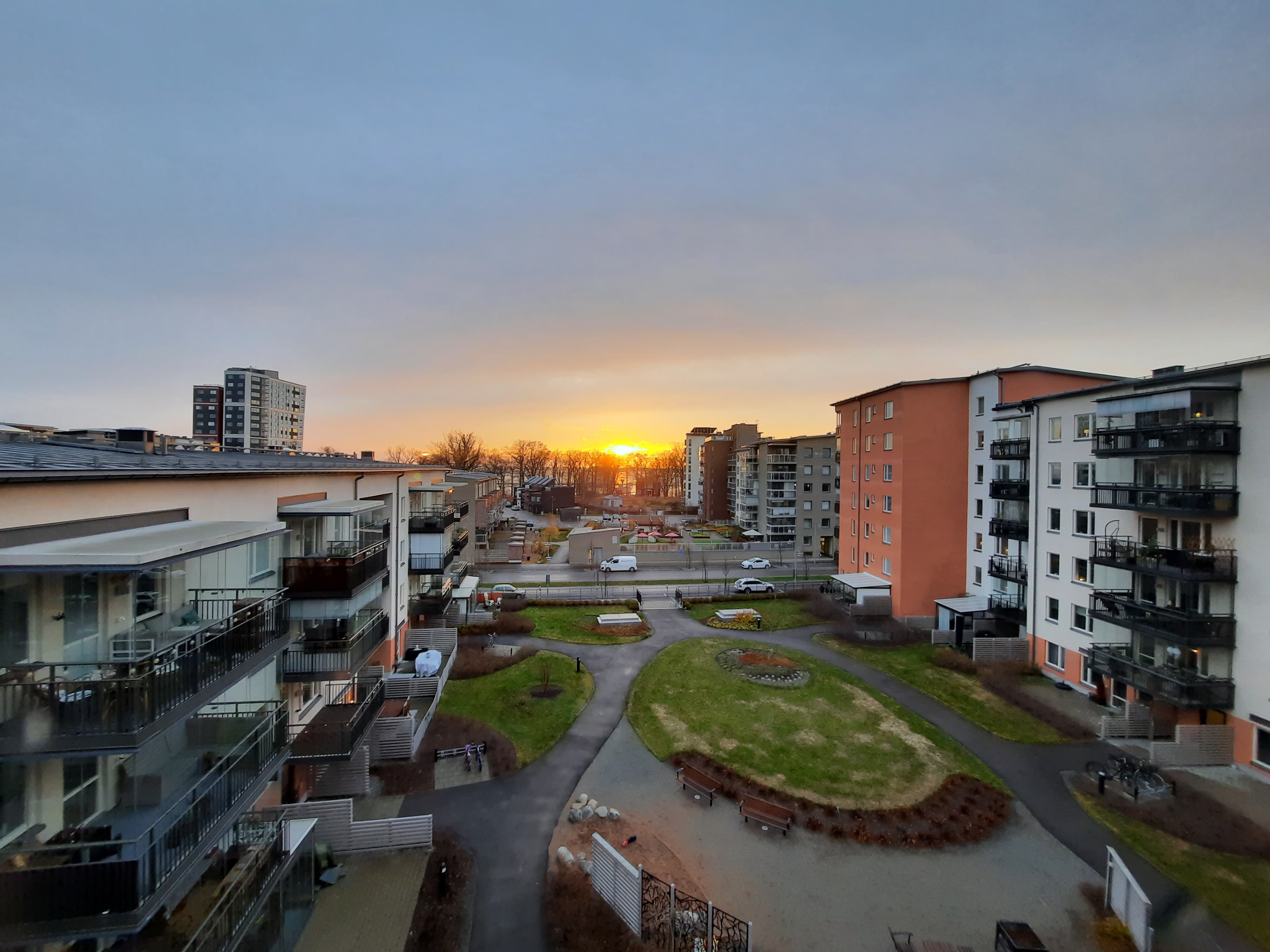 Marin and Vedrana's new neighbourhood, in Västerås, Sweden
Marin and Vedrana's new neighbourhood, in Västerås, Sweden
Why did you move from Osijek to Sweden?
Marin: There are lots of different reasons - opportunities, money, the church...It's cold. And there is a lot of snow. I like winter a lot more than summer. If it's cold, you can always put on more clothes. If it's too hot, what can you do?
Vedrana: I hate the winter and cold weather, actually. Marin wanted to come here. And my brother was already here. Maybe because it's totally different? Marin wanted to go to Ireland or Sweden. But, Ireland is a religious country, Catholic, like back home. We didn't want to live in another place like Croatia. I was here visiting, one year before we came, and it was -15. Freezing. Right now it's not so bad, around 4.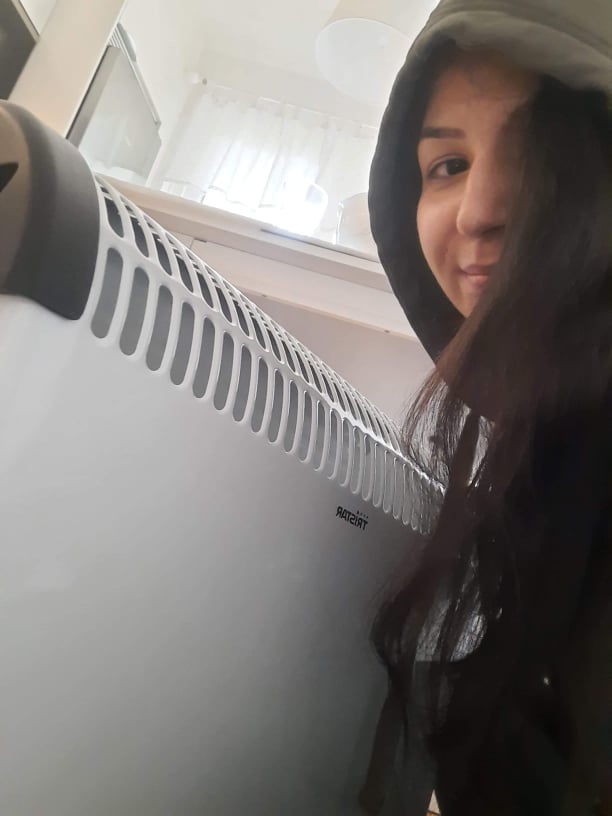
Vedrana doesn't like the cold. Marin's dream job is riding snowmobiles all day.
Marin: It can be -10 here but feel like -30 because the winds are sometimes very strong. Last winter wasn't so bad, but if you're on the windy side, it can feel really cold. I wear Christmas socks a lot. They're very warm. I have many pairs.
I saw you also have many pairs of papuče (slippers) by your front door. Why?
Marin: The tradition isn't going to die (Vedrana laughs). We brought that tradition with us from Osijek to Sweden. Most of them are for us, so we can wear different pairs, but some are for guests, although we rarely have any. We just have extra papuče that we don't use.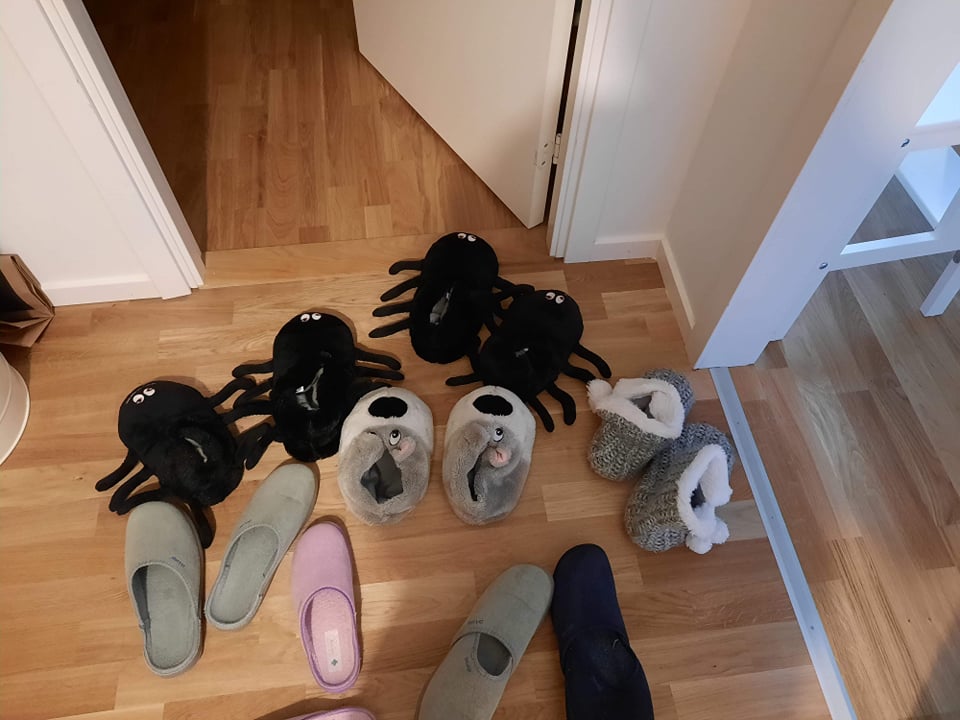 Croatians overseas: a tsunami of papuče
Croatians overseas: a tsunami of papuče
Vedrana: Our apartment here costs around 800 Euros per month. That includes water and payment for cleaning of the communal areas of the building. We pay extra for electricity, wifi and home insurance. Home insurance is mandatory. It costs around 100 Euros a year.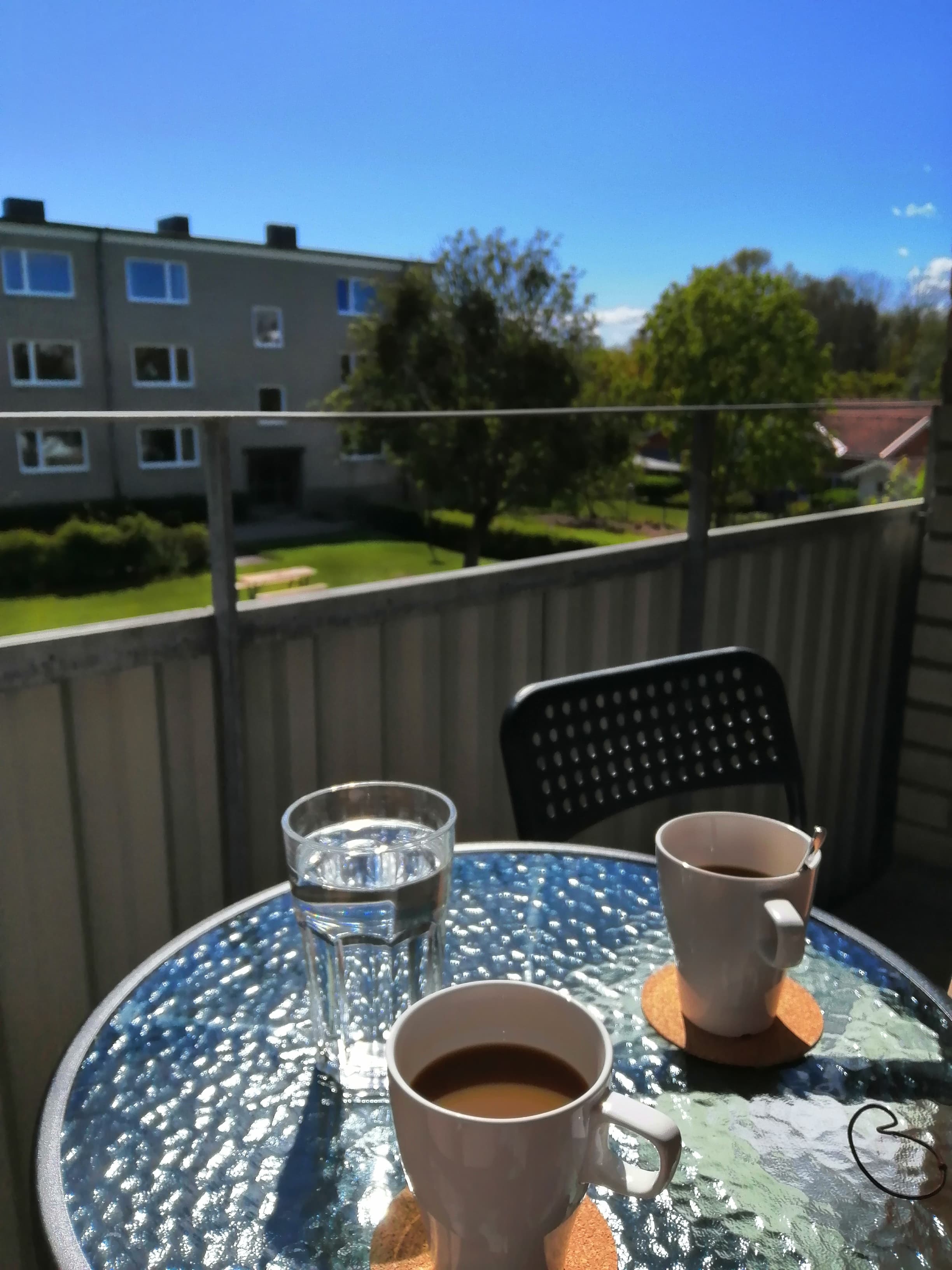
Marin: We came to Västerås because Vedrana's brother was here, but now he moved to another place. He helped us find an apartment when we first arrived. It's difficult to arrange an apartment from Osijek to Sweden with an agency - you actually have to be here. It's not something we could do online before we came.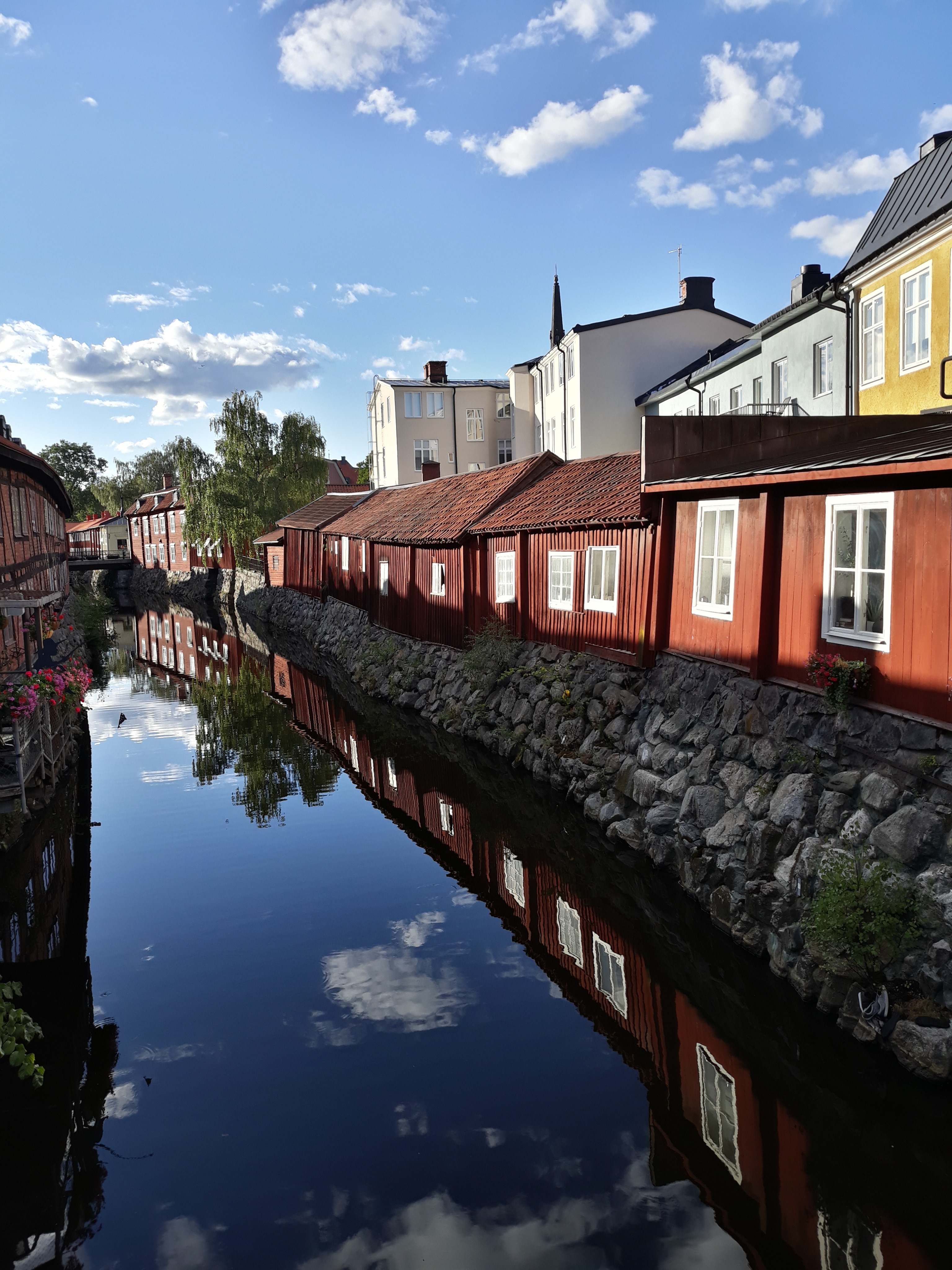
Vedrana: We were saving for around a year before we came, in preparation. We got around 30, 000 kuna. We spent it on travelling here, start up and the first apartment. My brother's wife worked in a company here and she made a recommendation for me and I started to work there. Then, I made a recommendation for Marin. Everything here is made with recommendations. Everything. Our company offers services. Anything you could think of. Home services, customer services. Sometimes you might be sent gardening, babysitting, fixing something in someone's home, painting a room, window or home cleaning, helping someone move house. Sometimes the client is a private individual, other times it's a company.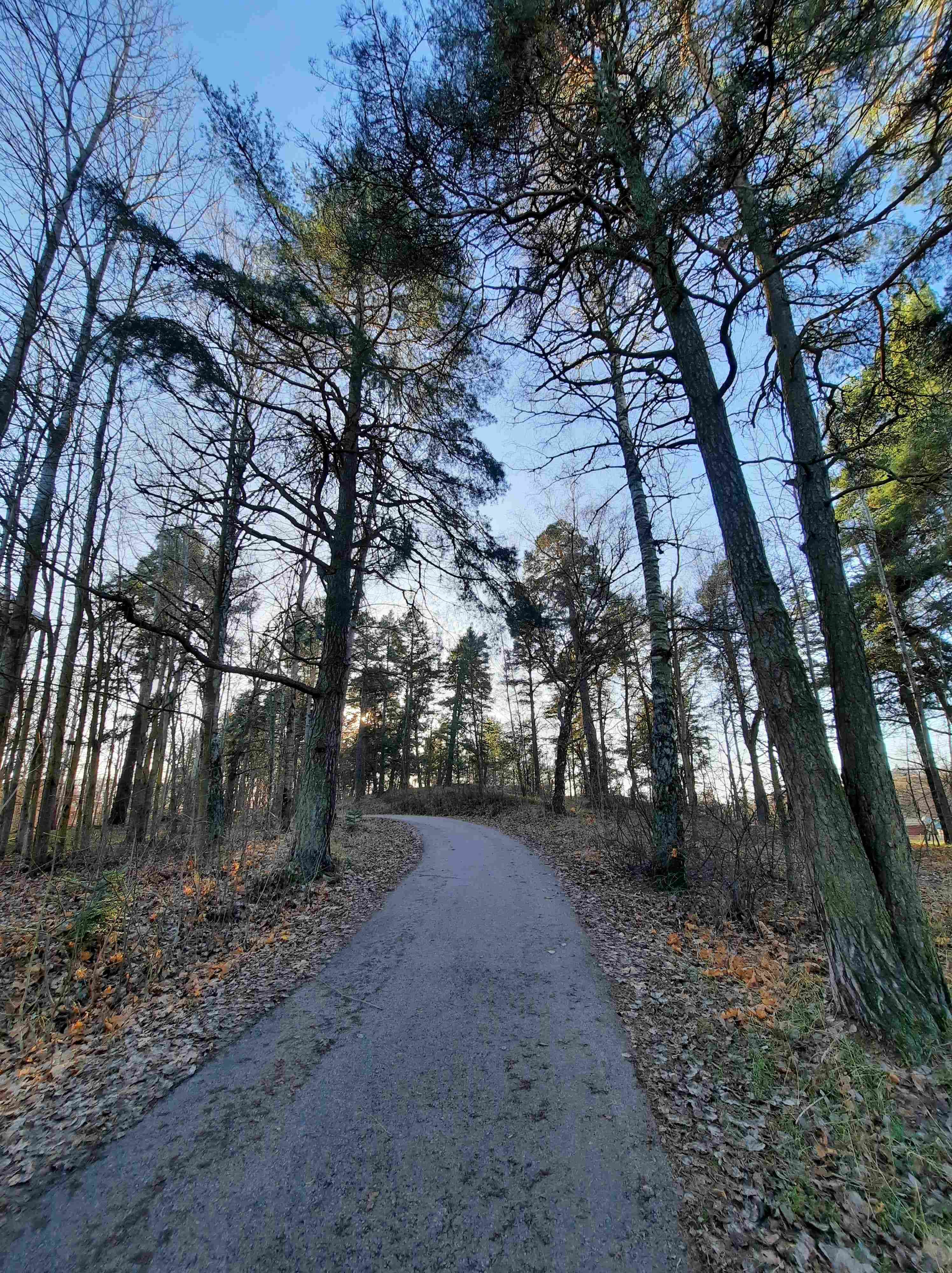
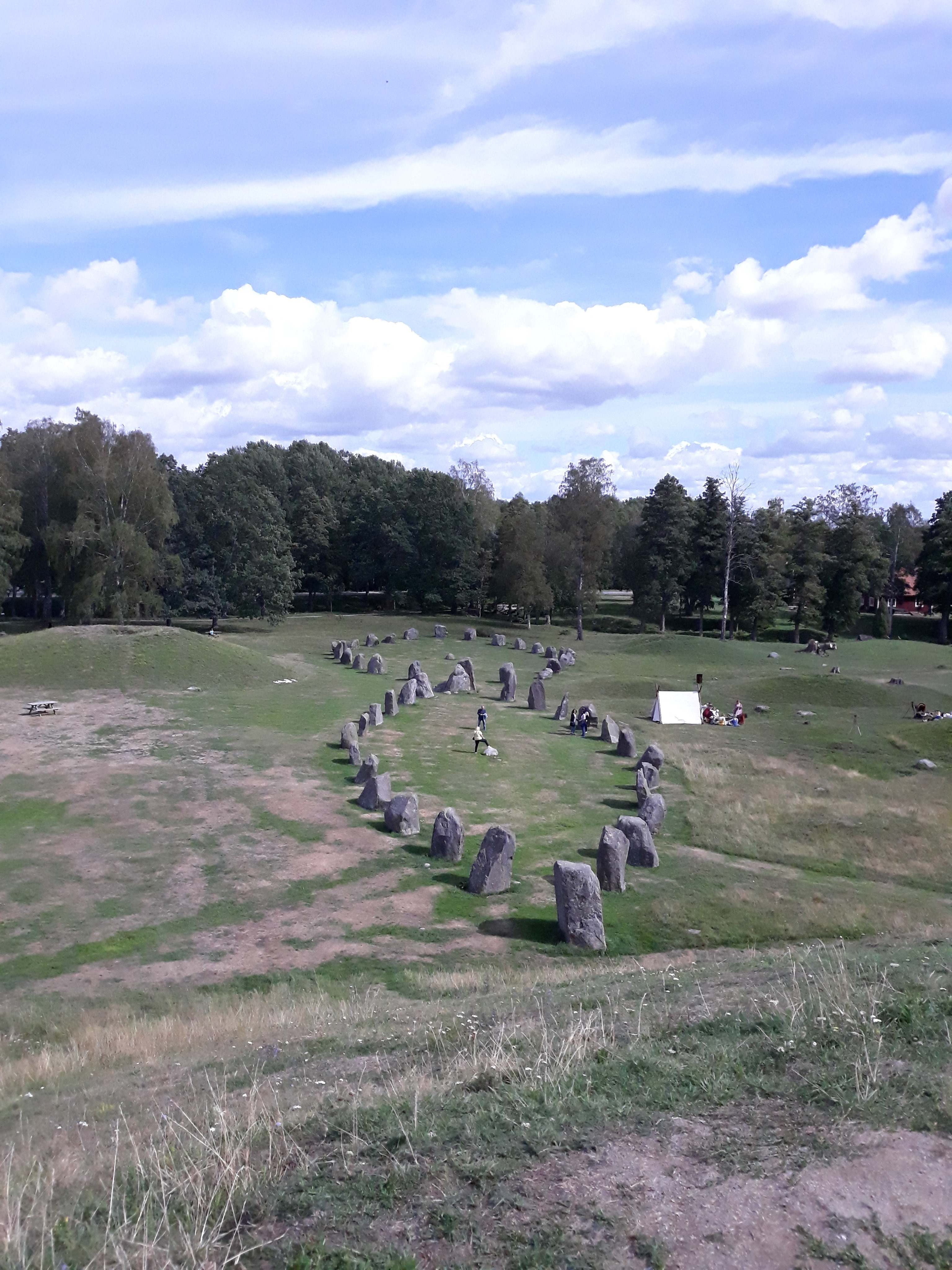 "We like going for walks here. The scenery is very different to Slavonia" Vedrana
"We like going for walks here. The scenery is very different to Slavonia" Vedrana
Vedrana: We don't work full time here. We work around 75% of a full-time job. So, it's part-time. But still we have enough money to live and much more than back in Osijek. In Osijek, for working in the store full time, I earned 400 Euros per month. As a waiter, Marin earned around 600 Euros per month, depending on tips. Here, after tax, we earn around 1200/1300 Euros each. Sometimes Marin earns more because he can drive and so he can be sent outside of the area to do jobs. He is paid for his driving time.
Vedrana: Around one week ago, I bought myself some boots for 200 Euros. I would never have been able to do something like that in Osijek. When we went food shopping in Osijek, we always went with a list. If you didn't have a big salary, like us, you have to count what you are spending. Here, we don't do that. If I see something that I like, I will buy it.
What jobs would you like to be doing there?
Marin: I would like to work as a graphics technician or as a waiter again. I like being a waiter, I like working in hotels. Of course, my dream job would involve driving a snowmobile all day.
Vedrana: I would like to be a care assistant, but I need to learn Swedish first and then go to school.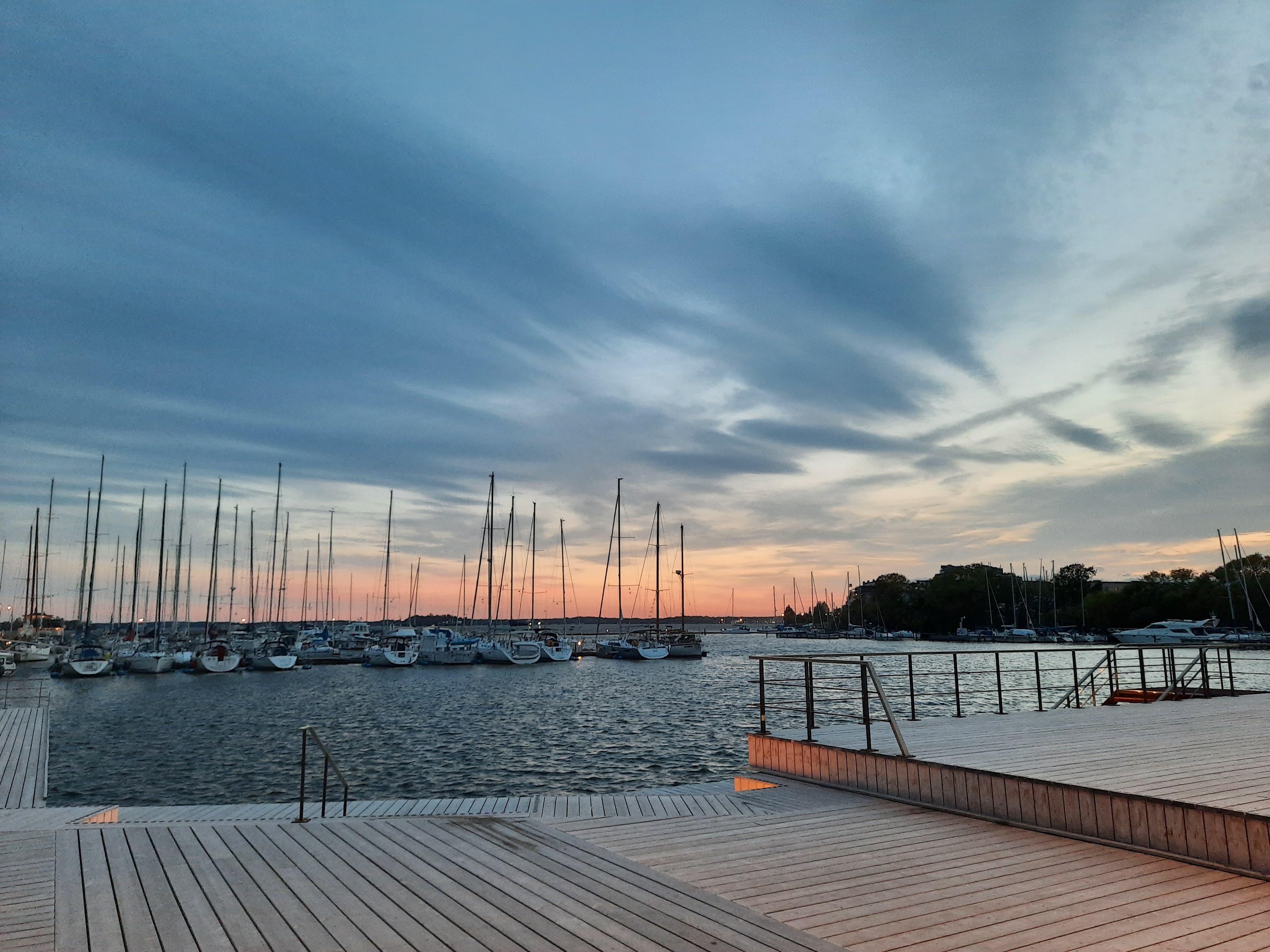
Marin: We had nothing when we arrived. We had two small chairs and we borrowed a thin mattress from her brother that we slept on. We bought pans, pots, plates, glasses and knives and forks first. Next, we bought a table and chairs. Then, we acquired a bed, we bought a sofa. After that, we stopped buying anything until we found an apartment that we could see ourselves living in for a long time. That's the one we are in right now, it's our third apartment here.
Did you meet any other people from the Balkans in Sweden?
Vedrana: Yes. I met a lady in an apartment agency. She took our ID details to check our backgrounds and when she saw our names, she said “Maksimovic? Where are you from?”, in English. When we said “Croatia”, she said “Pa mozemo i ovako pricati (well, we can talk like this)”. She was from Sarajevo. She came here 10 years ago. Another time, I went to a woman's apartment to work for the day. As a client, she already had my name and details. When she opened the door, I said hello and asked if she spoke English. She replied. “Možemo pričati na našem”. Her name is Elena and she is from Belgrade. We still see her sometimes, she is nice. She's been here around 20 years.
How difficult it is to learn Swedish?
Vedrana: It's really hard.
Marin: It's easy. I started when we were still in Croatia, just to get some basics. A few months ago, we started school. I learned English and German in both elementary and secondary schools. You can see the associations of those languages with Swedish.
Vedrana: The accent is difficult. You must make different sounds with your mouth than we have in Croatian. It's a very beautiful language when you hear it. It's not like German.
Marin: They sound funny when they talk. It sometimes sounds like they are singing.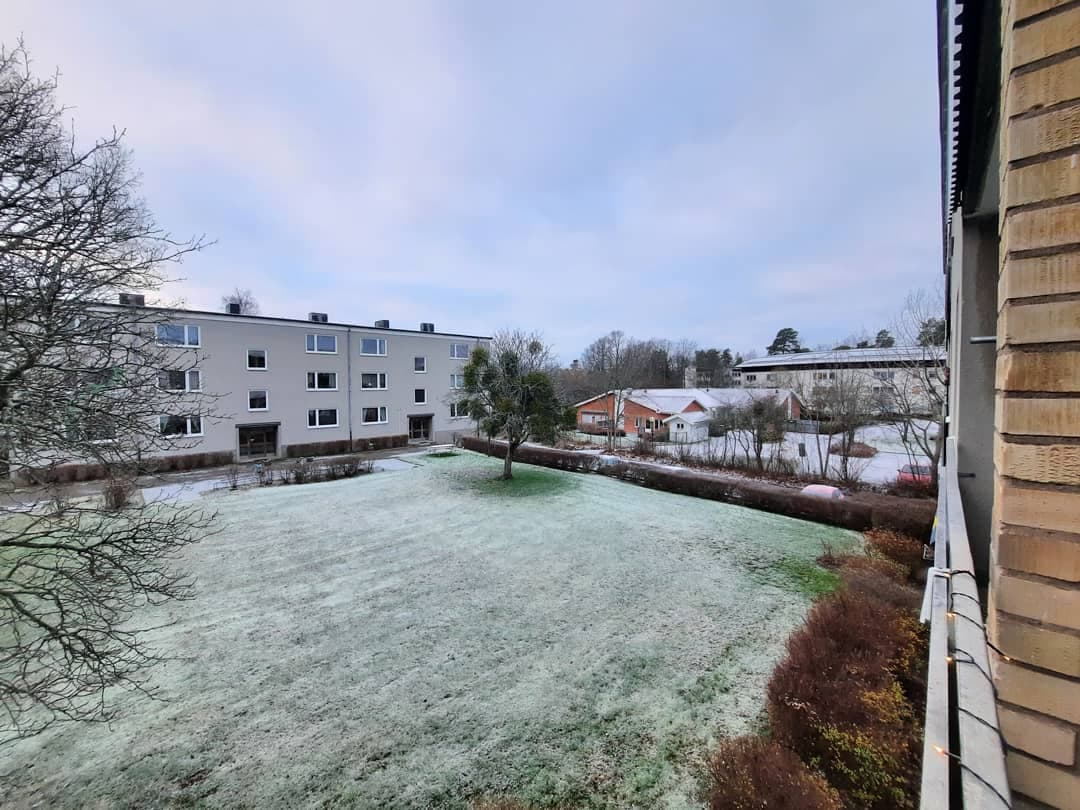
Would you move to a different city in Sweden if the right job opportunity was offered to you?
Vedrana: Yes. I would like to go to Gothenburg or Stockholm. It's more urban there, more to see and do, and more opportunities.
Marin: I would like to go to the north of Sweden. It's even colder and more remote there. And more snowmobiles. But, they only do mining there, and I don't know how to mine, so I'm not sure if I could find something there.
How different is the food in Sweden?
Vedrana: We don't eat meat, so we got used to cooking for ourselves at home before we moved from Osijek to Sweden. So, we haven't noticed a big change in what we eat. We do both eat fish. The kinds of fish you can buy here are really different. We sometimes eat salmon steaks. You never really saw those much in Osijek. Salmon is not so expensive here like it is in Croatia.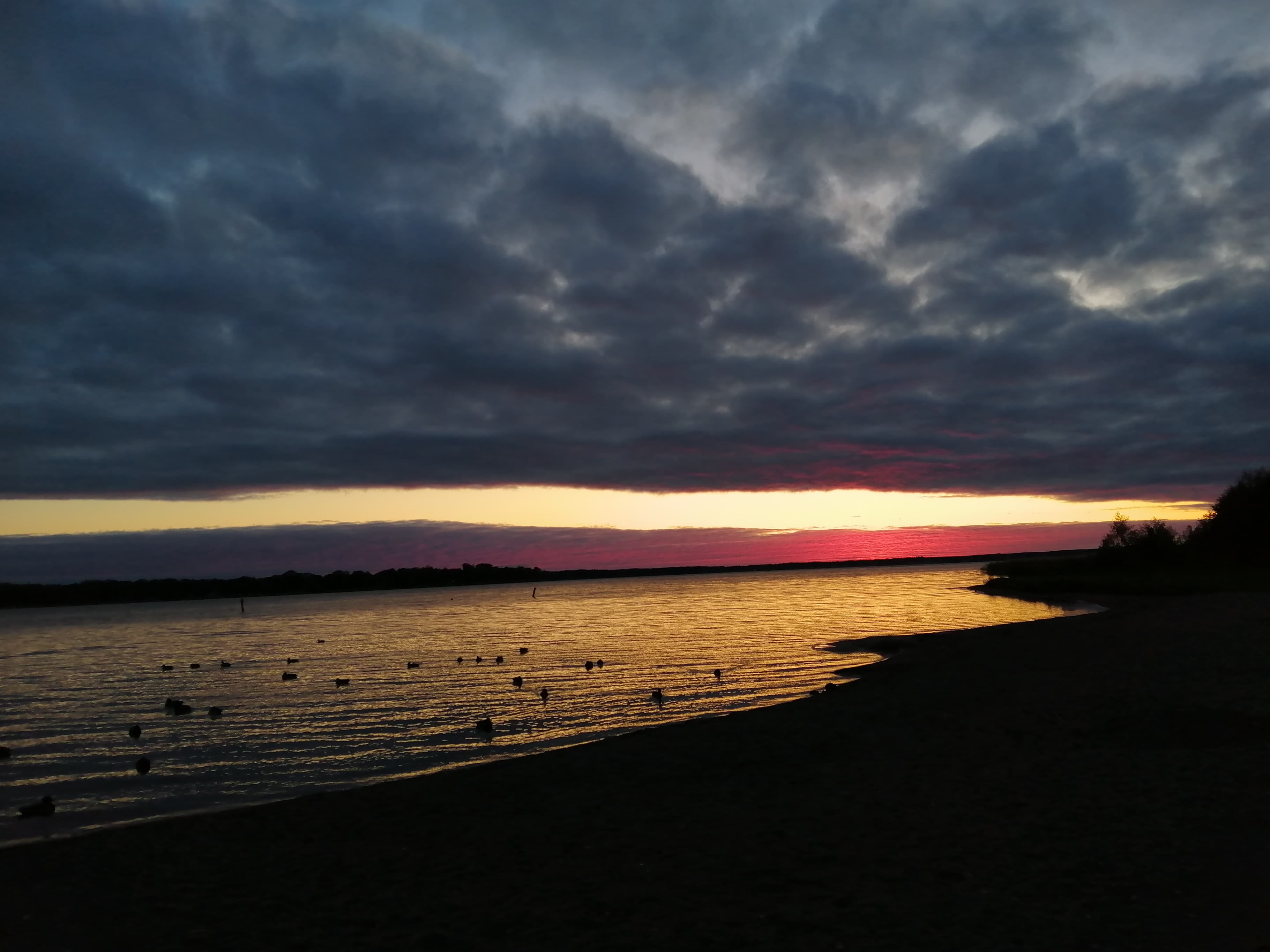 "In the summertime, it is light all the time. The sun comes up around 3am and stays up until 11pm, but there is light all the time. I like it. I don't have trouble sleeping through it. Marin did, at first. In winter, there is no sun. It gets lighter around 9am and that lasts until around 3pm. But, there is no sun. It's like that from late October until March" Vedrana
"In the summertime, it is light all the time. The sun comes up around 3am and stays up until 11pm, but there is light all the time. I like it. I don't have trouble sleeping through it. Marin did, at first. In winter, there is no sun. It gets lighter around 9am and that lasts until around 3pm. But, there is no sun. It's like that from late October until March" Vedrana
Marin: People are a lot calmer here. Driving is different. There are not so many cars on the road in Osijek, but here, nobody sounds their horn at you or sticks their middle finger up at you because they don't like the way you drive. Nobody seems to be in a rush.
Marin: Alcohol is expensive here if you go to a bar or club. In Osijek, you pay maybe double the price for beer in a bar that you would in the supermarket. Here, the beer you buy for 15 kronas in the store you would pay 70 kronas for in a bar. But, it's not so expensive to go out if you work full time.
Vedrana: Here, you cannot buy alcohol in a store or a supermarket like back home. You have to go to the special Systembolaget store to buy it. You must be 20 years old, it closes at 8pm in the evening, it closes at 3pm on Saturday and is closed on Sunday.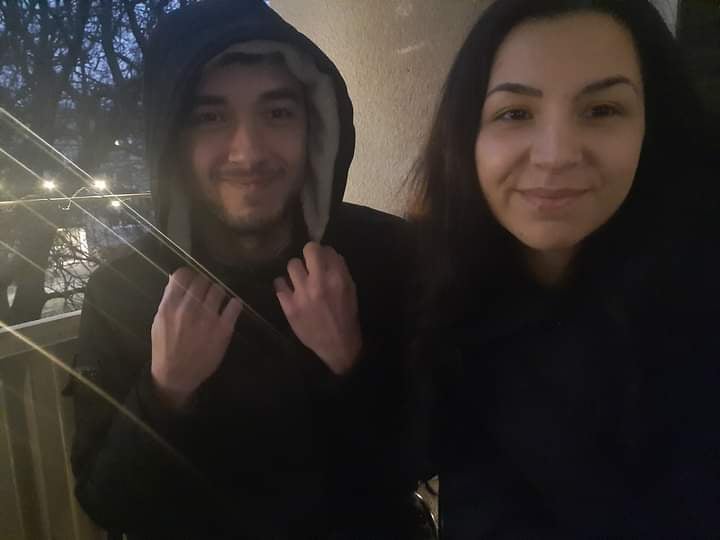
Marin: When you move from Osijek to Sweden, you can meet people from all over the world. It's not like Slavonia. We have neighbours from India. We speak together in English. We have a friend from Sri Lanka. I met a guy at work who is from Africa.
Do you ever regret moving from Osijek to Sweden?
Marin: Not sure yet. We don't regret it, but sometimes we feel nostalgic. But we realise that is amplified by this COVID situation – there's just not been any opportunity to travel back home and visit family and friends.
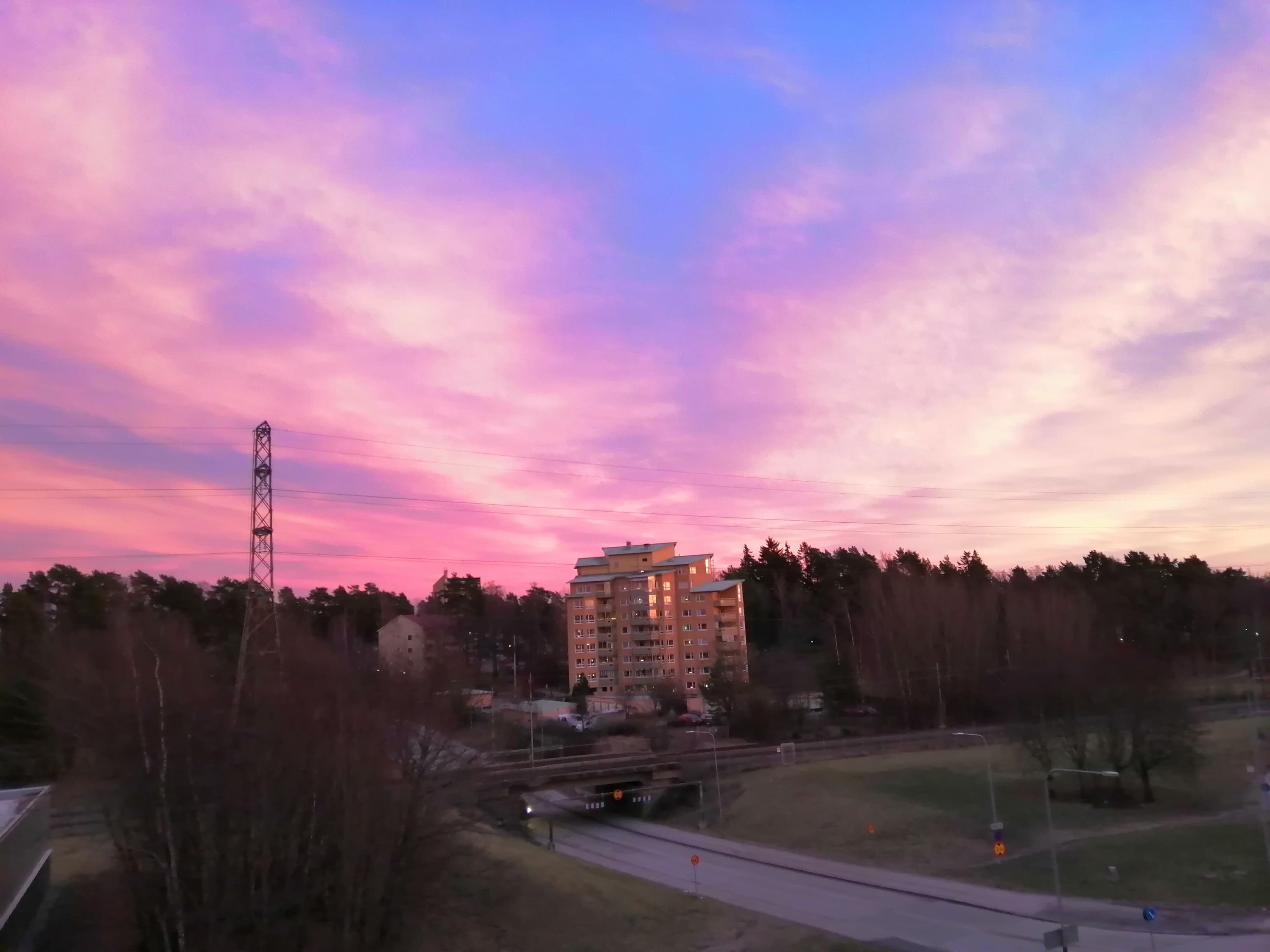
Swedish Travel News: Croatia Most Sought After Holiday Destination for 2021
December the 7th, 2020 - The ongoing coronavirus pandemic all but wrote off international travel for tourism this year, and Sweden, which made headlines across the world for its unique approach to the spread of SARS-CoV-2, has highlighted just which countries are high on the list for Swedes needing some sun in 2021. The Swedish Travel News tourist portal has transmitted information that Croatia is high on that list.
As Poslovni Dnevnik writes, according to the data published by the tour operator TUI Nordic, which has also transmitted by the Swedish Travel News tourism portal, Croatia is currently among the most sought-after tourist destinations for would-be Swedish tourists, according to Vedran Susic, the director of the Croatian National Tourist Board Representation over in Sweden.
Namely, twice as many trips were booked in Sweden last week than were booked just one week before, and when these figures are compared with those from a month ago, the number of bookings has tripled. At the same time, Croatia, along with Crete, Rhodes, Cyprus and Antalya, stands out as one of the favourites when it comes to the most common choice of tourist destinations for the Swedes next year.
The announcement also states that travel bookings were positively affected by the news of the coronavirus vaccine which is now closer than ever, while Adam Gyorki, Head of Communications at TUI, added that the increased number of bookings, in addition to the news about the vaccine, has positively affected the great desire to travel on Northern European markets such as that of Germany or the United Kingdom, and as such, the Swedish market as well.
For the latest travel info, bookmark our main travel info article, which is updated daily.
Read the Croatian Travel Update in your language - now available in 24 languages


